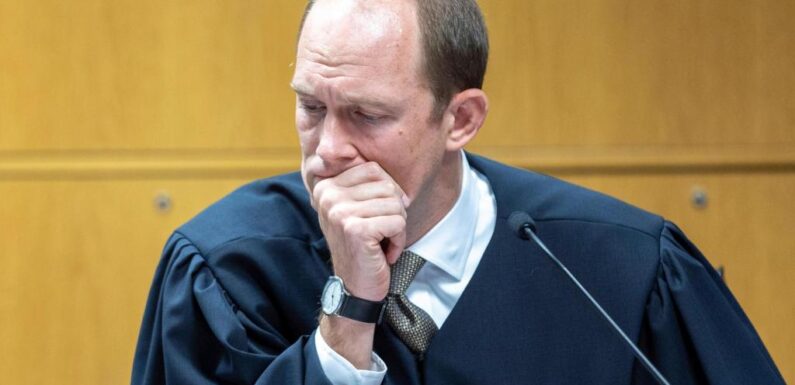
By KATE BRUMBACK (Associated Press)
ATLANTA (AP) — Prosecutors in the Georgia election subversion case involving former President Donald Trump said Wednesday that a trial would likely take four months.
The estimate from special prosecutor Nathan Wade came during a hearing Wednesday before Fulton County Superior Court Judge Scott McAfee on attempts by two of those indicted to be tried separately. The hearing was broadcast live on television and on the judge’s YouTube channel, a marked difference with the other three criminal cases against Trump, where cameras have not been allowed in the courtroom during proceedings.
Wade said his estimated trial length did not include jury selection, and he said the state would call more than 150 witnesses.
Fulton County District Attorney Fani Willis last month used the state’s anti-racketeering law to obtain a wide-ranging 41-count indictment and said she wants to try all 19 defendants together. But the legal maneuvering that has already begun in the three weeks since the indictment was returned underscores the logistical complexity inherent in a such a sprawling indictment with so many defendants.
Already some of those charged are seeking to speed up the process, some are trying to separate themselves from the others accused in the alleged conspiracy and some are trying to move the charges against them from a state court to federal court. All of them have pleaded not guilty.
After hearing arguments Wednesday from lawyers for attorneys Kenneth Chesebro and Sidney Powell to be tried alone, the judge decided to keep their two trials together and adhere to their request for a speedy trial, which would begin on Oct. 23. The judge gave the state until Tuesday to submit a brief on whether it should be a trial of two defendants or 19.
Several other defendants have also asked to be tried separately or in small groups, and Trump, the early front-runner in the 2024 Republican presidential primary, has asked to be tried apart from anyone who files a speedy trial demand.
Meanwhile, Trump White House chief of staff Mark Meadows was in federal court last week arguing that he was acting in his capacity as a federal official and his case should be heard by a federal judge. U.S. District Judge Steve Jones has yet to rule on that request. Four other defendants who are also seeking to move their cases to federal court have hearings set before Jones later this month.
Whenever and wherever any trial in the case ultimately takes place, jury selection is likely to be a significant challenge. Jury selection in a racketeering and gang case brought last year by Willis began in January and is still ongoing. In another big racketeering case Willis tried nearly a decade ago against former Atlanta public schools educators, it took six weeks to seat a jury.
Willis’ team on Tuesday asked McAfee to allow the use of a jury questionnaire that prospective jurors would have filled out before they show up for jury selection, writing in a court filing that it “will facilitate and streamline the jury selection process in many respects.” Prospective jurors may be more comfortable answering personal questions on paper than in open court and lawyers for both sides could agree that certain jurors aren’t qualified without additional questioning, prosecutors said.
Source: Read Full Article